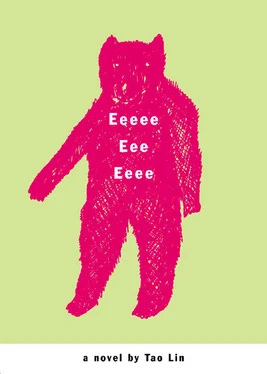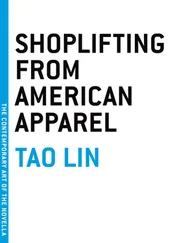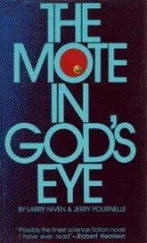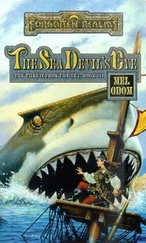Sometimes a bear would feel cold.
And go, “Hrr, hrr.”
And take a blanket from a moose’s head and slap the moose’s face.
The moose would say, “Thank you.”
Moose that year stood alone in shadowy alleyways. They weighed a thousand pounds, which made them not want to have thoughts. Mostly they just watched, from a distance — in blackness and without thinking. If some of the alleyway was bright and some was dark the moose would walk to where it was dark and stare at where it was bright — and not think anything at all. Sometimes an alien would stand with a moose, not because of solidarity but because of accidentally doing it. Aliens usually stood in dark doorways but sometimes got confused and stood in alleyways behind, on top of, or adjacent moose. Sometimes a bear climbed a moose and the moose would feel warm and happy, which made them run. Moose had no friends that year. A lot of the time a moose would feel tired and lean against other moose. Only there wouldn’t be moose there and the moose would fall.
It was sad to see a moose on the ground with its eyeballs round and looking.
So a bear would sometimes put a blanket over a moose’s face.
Bears liked to put blankets on things.
Sometimes a bear accidentally wished to have Sean Penn there.
The bear would be watching TV.
Thinking about the Pulitzer Prize.
And go blank a little.
And think, “I wish I could punch Sean Penn in Sean Penn’s face.”
And Sean Penn would be there.
Sean Penn would fight the bear when it got there.
The bear would try to stop Sean Penn but Sean Penn had knives and the bear would crush Sean Penn by accident.
The bear would think, “Oh god, oh my god.”
Then put a blanket on Sean Penn’s corpse’s head.
It was a year, that year, Ellen knew, as she’d noticed from her 10th grade classmates and from observing her family — her new year’s resolution (it was stupid to have one but she was bored in class and made a list, then picked one) had been to be more alert, to think more truthfully about things, and it had affected her, she guessed, with better grades, an increase in self-esteem that was actually just a realization of how dumb everyone was, and nerdy, slightly annoying insights like this one — for doing something not even that exciting or wild and then saying, “Why not?” Or else saying, “Why not?” then doing something sort of forced and meaningless. Mostly people just went around saying, “Why not?” and, later on, when it came time to act, saying, “It’s too hard,” without ever actually doing anything.
Things still happened that year, of course, like any other year — they were pretty much all the same, Ellen guessed; what was a year, anyway; floating around the sun in the straight line, really, of a circle; it felt sarcastic to keep count — just mostly by accident, or else by momentum, by implication and solution of past things (like a math equation, trying to solve itself, as what was the world, the unstoppable mass of it, but one of those long division problems in seventh grade that went on, annoying and blameless, forever?).
Ellen herself had knocked down a No U-Turn sign. She was sixteen and didn’t have a permit and didn’t want one — driving was bad for the environment, she had no money for a car, and she didn’t want to stand in line five hours to fail whatever stupid test — but had craved alfalfa sprouts with balsamic vinaigrette one night when everyone else was asleep, and so had washed her face and ran out to the street, to her brother Steve’s Honda Civic, the keys of which were left on the dash (more depressively, Ellen thought in a tic of imposition, than stupidly). After knocking down the No U-Turn sign she panicked and drove for a time on the wrong side of the road, where, after a vision of crash test dummies, she felt a vacuum-sealed sort of calmness — the sound-reducing serenity of breaking a traffic law, of going metaphysically back in time, to a truer place, where every direction was equally legal; probably this was not unlike meditation, Ellen thought gently — then cut across a median, knocking the right rearview mirror against a tree so that it banged shut against the window, and drove back to her neighborhood. At her house, thinking, Destroy the evidence , she parked, put the keys back on the dash, and then was wrenching the damaged rearview mirror off the car, though not without a lot of difficulty — and not without realizing, after a moment, that there wasn’t actually anything wrong with it, it just needed to be adjusted back into position; but continuing, still, with two hands, now, in a sort of rampage — and then was running across the street and lobbing the half-melon of the thing over a fence, into someone’s backyard. Back in her house, she walked around carefully, civil and perceiving as a saint. She saw her brother, Steve, asleep on the sofa. In the kitchen her two little sisters were eating a bowl of something, which they hid as Ellen walked by, into her room, where she crawled onto her bed and lay on her side, and, for a long time, then, until she yawned and closed her eyes and fell asleep, stared, a bit objectively, without mood or judgment — though self-consciously so, feeling while doing it a bit empty and melodramatic — at the other side of her room, where the bookcase, the computer, the desk, and the stereo were.
That was in the wintertime, and then it was Spring, and some nights, now, in bed, feeling very bored and a little lonely, Ellen would let herself worry that she had hit a person — that the person had looked like a No U-Turn sign; was wearing a cowboy hat, or something — and then have imaginary conversations with kids at school she wished she were friends with, the ones who listened to punk music like she did and who always dressed prettily and had very beautiful and vividly dyed hair.
“I think I hit a person.”
“No you didn’t.”
“I knocked down a No U-Turn sign. That’s illegal.”
“You’re being honest right now. You can use that to cancel out the sign.”
“I’ll tell the judge, ‘We’re even now.’ ”
“The judge will be like, ‘Fine then. Uh, I mean case dismissed.’ ”
Alert and awake, under her blanket, having these conversations, she would sometimes feel so yearning and friendless and unhelpable — each moment of being herself, she knew, was a strengthening, an adapting, of who she was; and she didn’t want to be who she was — that she would squeak a little.
In Ellen’s English class someone said, “I hope those motherfuckers die.” The substitute teacher seemed a little confused then grinned. Someone had overheard her in the parking lot calling her boyfriend a motherfucker. There were eight weeks of 10th grade left.
Ellen raised her hand. Usually she never spoke in class but no one was paying attention today. A group of kids were playing a board game on four desks pushed together. “We should use nonviolence,” she said.
“I hope those motherfuckers get really fair trials so they get what they deserve and die.”
“I guess,” Ellen said. She wasn’t sure. Didn’t the terrorists just want to be happy like everyone else? When people ate at McDonald’s weren’t they killing people — by supporting McDonald’s and enabling it to open more restaurants in places like Japan, where the kids would then grow up fat and diseased and get heart attacks or cancer and die — just like terrorists? Weren’t the terrorists at least less circuitous, a little more honest? Why didn’t the news care that much when all those Africans killed each other in Rwanda? Why didn’t McDonald’s open free restaurants in Africa and save people? Why was the teacher letting everyone say ‘motherfucker’?
“What is the theme of 1984?” said the teacher. They were discussing 1984 .
Читать дальше












